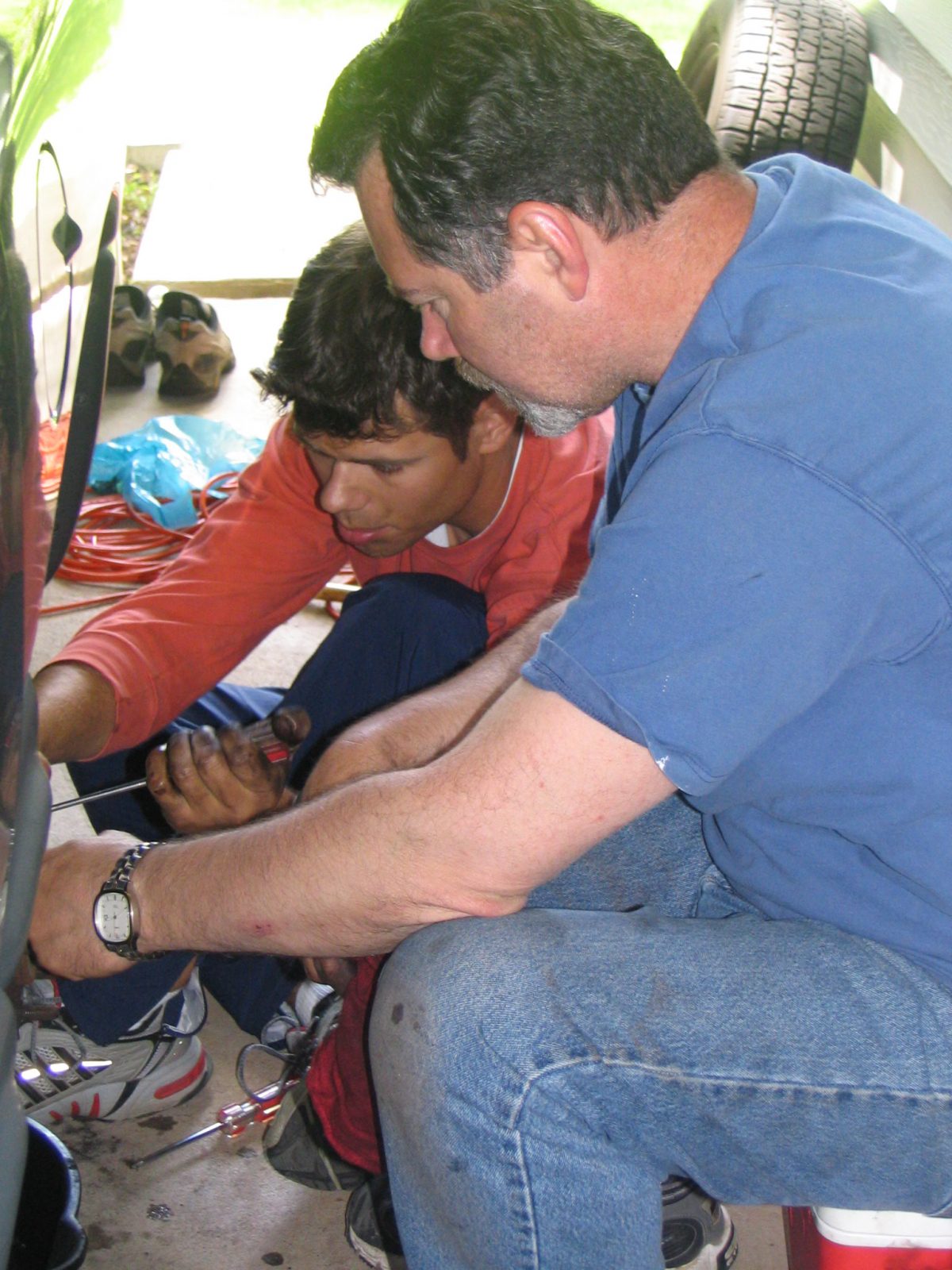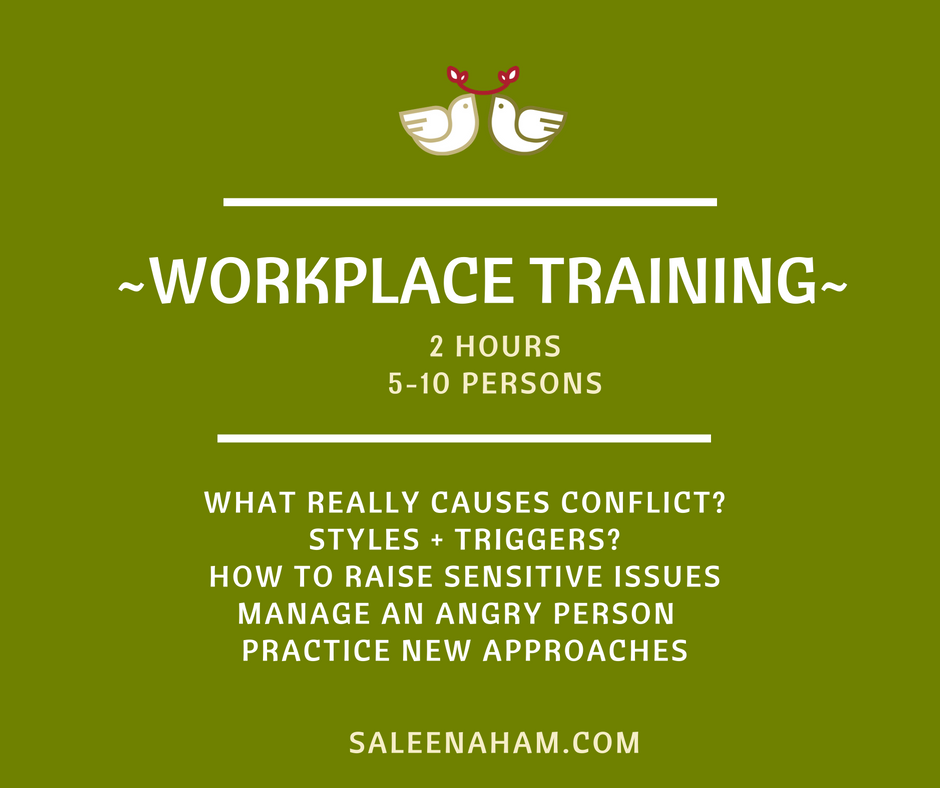Getting along with colleagues – it’s the source of a lot of misery and a lot of magic when you have the essentials for good relationships. Why can it be so tricky? Here are 5 essentials to get along with coworkers.
When it goes well, life is awesome. We feel in sync, we ‘get’ each other, there is ease and enjoyment in how we interact and share ideas. There’s a good vibe. We feel safe.
When it’s not as easy, there is stress. We are on alert for the next problem.
We have our radar on, all the time, constantly asking the question: am I safe, is this interaction safe, is this person safe, is this conversation safe, is this place safe.
We are on guard for clues that there is some tension, looking at actions, listening for tone, watching for familiar patterns.
Our body is ready, getting us ready, priming for safety with the ancient brain’s primitive options – to fight, to freeze, to flee. Our childhood programming kicks in, with what we know from our own life experience, to inform our choices of what works, to keep safe.
We make lightning fast judgments, rely on assumptions and create explanations for the situation, sometimes making up the worst possible story to make sense of what might be a possible risk, to keep us ready in case we are under attack.
And if by chance, we get any part of our interpretation wrong, we have already made the whole situation worse because we have now responded in a way that makes the Other person feel wary, unsure about us. And up the escalation spiral we go.
Now the Other coworker is making judgments, assumptions and explanations for our behaviours that are suddenly off-kilter.
Of course we have ‘sophisticated’ ways of dressing all of this. We manage our emotions – or we think we do. We have some rational capacity to understand people and their behaviour – everything isn’t really a threat.
Everything really isn’t About Me.
Sometimes the behaviour of the Other is about their own life issues, their own problems and perceptions and nothing to do with Me. In fact, most of the time.
However, this frankly does not stop us wondering if what they are doing is really a response to my Self because this is so deeply programmed into our psyche by one thing and another.
Be clear about this – it takes effort to build connection with coworkers and keep it. You do need to be willing.
And if you are willing then there are absolutely some steps that can make and maintain great relationships.
1. Consistent decency – to build up some protection against inadvertently kicking the Fear buttons in others you can build up some consistent history in being decent. This means effort on your part. It means making the investment into relationship. Put some effort into building goodwill in the connections you have with people around you.
It sounds obvious surely – but it means doing things that are not ‘necessary’ to build goodwill between you and them.
The little things that make the relationship wheels go round – not just at home, with immediate family, with extended family but also with the people around us in other places.
The effort of being polite, of noticing coworkers, of thanking them…this is an investment in relationship. This means that when there is some uncertainty, tension or disagreement, it is much less likely that they will go immediately to High Alert and start interpreting Threat.
When there is some history, or some experience of you that they can reference, some factors which are evidence of you behaving in a ‘safe’ way over time – you have a buffer of goodwill.
2. Be a good listener – most people hear this and go, yeah, yeah, yeah.
I am a good listener, they think. Yep, yep, of course.
But the research, does show otherwise. We listen about 30% of the time and most of us think we are good at it and we are not. Our Self gets in the way.
There is reluctance to learn or practice listening skills – it feels like we are going back to Kindergarten to learn basics we should/do know already, learned long ago.
But the thing is – active practice makes a great difference in personal awareness for being a truly good listener and there are few things that are a better investment in maintaining good relationships.
Listening is about tuning in to their message and tuning out your own head-talk. One test is to start restating back to the person your understanding of what has been communicated.
I challenge you to do this and test just how easy or hard you find it. Restate what you hear – the feelings, the facts, the implications.
Next time you feel those rising emotions of anger, alarm, anxiety – before responding – check that you understand correctly before doing or saying anything.
This prevents a lot of problems.
Make sure that you are not acting on a misunderstanding or on an interpretation that is springing from all sorts of history and prejudice.
This is so common. We create a story to explain, based on our experience and hangups and then act as though it is truth.
Of course, sometimes, it is the truth or close enough.
That makes us more vulnerable to making the mistake of thinking we always have it right. Because, every now and then we are wrong.
So it is worth checking. It’s very helpful to make sure you have the facts before escalating a situation unnecessarily.
3. Be aware of my feelings – scary, this one.
Feelings are those things that we are taught about in childhood. For many, they are deeply associated with the negative.
Expression of feelings leaves us vulnerable to derision, shame, vulnerability – so we do not DO them. Or certainly not In Public.
But here’s the thing: if you suppress or repress emotions, they will have their revenge – they will oppress You in secret.
Don’t believe me? It’s sadly the case that emotions just will have their moment – whether they come out in recognisable directly related way or whether they become like trolls under the bridge, and come out in sneaky, nasty, indirect and ‘unconnected’ ways.
Of course it often is NOT safe to express feelings – not safe, not appropriate and not done! I know. Social norms are not going to be shifted on this, right.
That means that it is very important to have safe ways of recognising and owning what is going on emotionally for your Self, without losing it in a serious way or in a way that has serious consequences.
It is possible.
It starts with being self aware. Start being aware of where those feelings are lodging in your body.
Focus on your body and what is going on in there.
And then with that awareness the other critical skill is knowing how to speak feelings directly and safely, rather than letting them become unconscious triggers and hot buttons that drive expression of feelings indirectly.
Many will take pride in their high levels of emotional control – in being able to stay calm, to retain authority and rational composure under pressure.
I know because I am in that camp. It’s a bit of a mask though, people because all of us really have strong emotions.
We may not express them in the same outward ways but believe me – emotions are drivers of the most powerful kind and no one escapes them.
We are affected by them deeply, and if you think you are not being affected by your feelings, then this is quite frankly a self-delusion.
Not nice to hear – especially for someone who feels that they have their feeling stuff in one sock. They have it Together!
Yes.
I believe you do…until tomorrow, until you go home, until you lie awake at night. Until you kick the dog, drink a bottle of scotch, suffer indigestion, shout out your serious road rage or develop dangerous health problems.
Being in touch with feelings is outside the comfort zone for many, but it really does hold the keys for more control, more personal control under pressure that does not result in awful outcomes.
4. Expect respect – good relationships start with Me.
I have to care about my Self enough to look after my needs. It is necessary to set boundaries, decline the request, divert the nosy question; say no.
It is necessary to ask for what I want, request cooperation, express my needs.
When another is encroaching on my boundaries, with their expectations of me, I need to be able to practice self-care.
I am responsible for this – not them – I have to set the line on what is ok or not ok for me to do in my world.
It’s important that you model your own self-respect and draw that line. Doing this is an act of assertiveness – not one of aggression.
Using personal responsibility, it’s about acknowledging the request or expectation of the other and declining it. This will come as a shock if the Other is used to your compliance.
Practising assertiveness is an art as the circumstances for human interaction are so diverse. It’s not about being aggressive or unpleasant.
It is about expressing your self confidence and self care – even if you don’t feel those things. In the end if someone is encroaching on you in some way, causing resentment, irritation or worse – you are the one who needs to act.
In a way that does not make it unsafe for an Other.
5. Learn how to apologise – sometimes you are wrong. Sometimes I am wrong. Yes, sorry; it is a proven fact – we all make mistakes.
We all have a bad day. We all sometimes bring our our Ugly Self instead of our Best Self.
We all have bad moments, situations of imperfect and unpleasant behaviour, rash things said and done, things we later regret.
No one misses out on this.
When we have fallen in that trap, the fastest and most effective way of fixing things is a sincere apology.
Yes – so thinking about apologising or that situation where maybe you should be thinking about apologising – you know the one.
How do you feel about it? Are you cringing now? Are you thinking up reasons, qualifications, justifications, explanations for why you are not apologising?
It’s true, we don’t like admitting fault.
It’s associated with owning shame.
It’s associated with admitting vulnerability. We think we are giving away our power.
We fear it signals ‘giving in’ or giving up something we still want to fight about.
We fear it will be rejected. We justify not apologising because in already escalated situations where there is a long history of tit-for-tat, “..we aren’t the only ones in the wrong.”
And that is certainly likely to be true.
We fear that someone will not accept our apology – “It’s not real, not a real apology”. There are these risks. There are also possible gains.
Often, only when the pain of the conflict is greater than the perceived pain of the apology, are we more inclined to do it.
When we value the relationship or have a stake in it’s ongoing health – we are more likely to risk the fear of an apology.
Here’s a crazy thing: apologising sincerely, often increases personal power and standing in relationship. As does sincerely accepting an apology.
A sincere apology nearly always increases our status, reduces the shared pain and clears the slate for new things.
So if you are in the wrong, really, how much pain do you want from this? Even if there has been a lot of water under the bridge, or over the bridge, an apology is always of value.
It is an act of grace to give and an act of grace to accept. It helps no matter how much time has passed. It is healing for you and for them.
And it models a mature and positive way of relating that is contagious for Others around you.
Making and maintaining relationships is work – it’s constant work and it does take self awareness and skill. It matters that you are investing in connections, that your actions are consistent, that you are responsible for your feelings, for your problems.
It matters that you care about your Self and can care about Others. It is easier to have keys to good relationship when you know your own needs and drivers, when you have some communication skills for expressing tough stuff responsibly, when you have some awareness and courage on the bad days.
This practice makes for better relationships and that makes for better quality of life.
We all have people that we value. We all have ups and downs in our relationships, like a tide that ebbs and flows, we have moments of closeness and moments where we are further apart.
This is the way it should be, spaces in our togetherness.
And always, for everyone, at some point there will be conflict.
We will need to manage the various shapes and expressions of anger and disagreement, in a healthy way to maintain our self care and good relationships.
Relationships that are healthy are based on mutual respect and personal responsibility for our own behaviours. When we are willing to be responsible for our own problems, concerns and issues. When we have those skills, we set ourselves up for strong problem solving.
When a dispute comes along – and of course, it will – we are able to deal with it properly and not be afraid.
It does not have to end up in an escalation, in a painful mess where people are hurt and misunderstandings send us to places where we feel we cannot return.
Maintaining good relationships is about habits of personal responsibility and care for Self and Others. Such behaviours are contagious and have the power to ripple out to Others in amazing ways.
If you want to make this change in your space, start with awareness of what you do now. And select one thing, start with one idea or initiative as a positive change.
Action it.
It always starts with Me.









